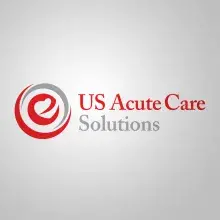Change Management and Echo Consulting – Where the Rubber Hits the Road
There are few words in the business world open to as much interpretation as integration. In health care, the word is suddenly ubiquitous. It’s part of the language of health care’s brave new world. And it leaves oh so many details shrouded in mystery.
The new integrated acute care program at US Acute Care Solutions (USACS) has proven it can achieve dramatic results at two pilot locations in Pennsylvania, with left without being seen rates falling from 1.2 to 0.3 percent averaged over five months since implementation. Over the same period, arrival to provider time and length of stay for discharged patients also saw significant drops. Length of stay for admitted patients has fallen by 18 hours.
Those results prove USACS is doing more than just speaking the language of integrated care – it is achieving results. But how did USACS get from here to there? Change management in health care can be extremely difficult. Perhaps it is the most difficult, influenced as it is by a web of complex factors, from a complicated, ever-changing regulatory environment to entrenched cultures and processes to competing power centers.
This is where Echo Consulting Group comes in. Established in 1999, Echo has grown in lockstep with the growing pressure for change throughout the health care world. In 2009, USACS invested in the company, and in 2016 Echo became a wholly owned subsidiary, yet still operating independently under its own leadership, structure and brand.
The preservation of this “outsider” status is crucial to our work. Echo is a group of experienced clinicians, data engineers and analysts who do the nitty gritty work of implementing sustainable process improvements on behalf of our hospital clients. As USACS has grown over the past 18 months, our work has focused on assisting the group to expand its hospitalist and observation medicine programs nationwide.
Our pilot programs in Pennsylvania have shown that when it comes to giving one physician group management over both the ED and the hospitalist program, one plus one really can equal three. But having the same group managing the ED, hospitalist and even a dedicated observation unit only bears fruitful results when the integration is truly substantive, and not just a buzzword. That’s what Echo makes sure of.
Data Analysis
When a contract begins, our first step is a large request for data from the hospital partner. Our team of data analysts crunches the numbers on wait times, arrival to provider, time to discharge, length of stay and all the time-sensitive metrics of interest to hospital leaders.
We look for pain points, but more importantly we start to run “discrete event simulations” to predict what the implementation of certain process changes may mean for the hospital. Discrete event simulations are an incredibly important tool, allowing hospital leaders to predict the impact of certain changes before investing the time and effort required to embark on a large improvement program.
Furthermore, our analysis helps all the stakeholders understand what is achievable given the current baselines.
Clinical Observations
Our data work is supplemented by observation of clinical processes at every stage of care, in every room, at all hours of operation. We join the physicians, nurses and advanced practice providers as they do their rounds, triage and intake.
We observe bed assignment and admit processes, determine the challenges the ED faces during its most crowded times, and examine the flow of patients from the ED into either inpatient beds or observation units, and finally through discharge.
Sustainable Outcomes
Ultimately, our goal is to implement change and new processes which are sustainable over the long run. Our position as an outsider coming in with fresh eyes can be critical to understanding the roadblocks toward making this a reality.
In many cases, the processes, protocols or ways of doing things desired by hospital leaders simply break down when run up against an entrenched culture, or a hard-to-alter process that has been in place for years.
If there were some “secret sauce” to making change happen, everyone would be doing it. But the fact is, change is different for every environment. It requires a creative mind, a flexible way of thinking, a rigorous analytic approach, and perhaps most of all a particular kind of grit to make change happen in health care.
Echo has been applying these skills for more than a decade, ensuring that the word “integration” isn’t just a serious-sounding word in a new language intent on leaving out all the details. We know that “integrated acute care” isn’t necessarily integrated unless we have made those difficult investments of time, analysis and sustainable process improvements.
Visit the USACS website to learn more.

